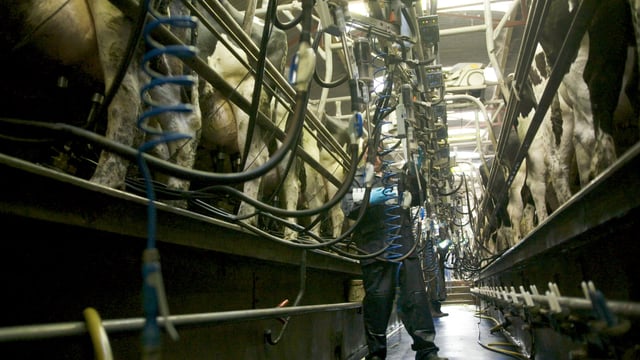European Commission proposes new 'simplifications' to CAP
The European Commission has today (Friday, March 15) unveiled proposals to deliver "simplifications" to the Common Agricultural Policy (CAP).
The proposals relate to conditionality and CAP Strategic Plans and according to the commission aim to "reduce the burden related to controls for EU farmers" and give them greater flexibility when it comes to complying with certain environmental conditionalities.
Ursula von der Leyen, president of the European Commission, said: "Today’s proposals - crafted in close cooperation with farmers, key stakeholders, our member states and MEPs – offer targeted flexibilities to help farmers do their vital work with greater confidence and certainty.
"We are sending a clear message that agricultural policy adapts to changing realities while staying focused on the key priority of protecting the environment and adapting to climate change."
The move by the commission comes after months of farmer-led protests across Europe and is, it said, a "direct response to the hundreds of requests received from farmers' representative organisations member states".
The European Commission said the legislative proposals aim to strike a balance between what it described as the necessity to maintain the CAP's role in "supporting the transition of European agriculture to more sustainable farming" and reaching a quick agreement between the European parliament and the council.
The commission has proposed a "targeted review" "of the set of nine standards - often referred to as conditionalities - set out in the good agricultural and environmental conditions (GAECs).
It will specifically address:
- GAEC 8 on non-productive features: EU farmers will have to maintain existing landscape features on their land but will no longer be obliged to dedicate a minimum part of their arable land to non-productive areas, such as fallow land;
- GAEC 7 on crop rotation: EU farmers will be able to fulfil this requirement by choosing to either rotate or diversify their crops, depending on the conditions they are facing and if their country decides to include the option of crop diversification in their CAP Strategic Plan.
- GAEC 6 on soil cover during sensitive periods: Member states will have much more flexibility in setting what they define as sensitive periods, and the practices allowed to fulfil this requirement, in light of their national and regional conditions, and in the context of increasing weather variability.
The European Commission has also proposed that member states may exempt certain crops, soil types or farming systems from complying with requirements on tillage, soil cover, and crop rotation/diversification - which relates to GAECS 5, 6, and 7.
It has also set out that in "extreme cases of adverse weather conditions preventing farmers to properly work and comply with the GAEC requirements" member states may also introduce temporary derogations.
In addition to this the commission also proposes "to double the number of amendments allowed each year".
Finally it also has set out a proposal to exempt small farms of under 10 hectares "from controls and penalties related to compliance with conditionality requirements".
"This will significantly reduce the administrative burden related to controls for small farmers who represent 65% of CAP beneficiaries," it has stated.
Separately the European Commission has also announced that it plans to launch a new observatory of production costs, margins and trading practices in the agri-food supply chain.
"Composed of representatives from all sectors along the food supply chain and representatives of member states and the commission, this observatory will increase the transparency on costs and margins in the chain by making data public, and exchanging information, with a view to building trust between the stakeholders and establishing a common diagnosis of the situation" it outlined.
The observatory is expected to hold its first meeting this summer.
According to the European Commissioner for Agriculture, Janusz Wojciechowski, today's proposals "embrace a pragmatic and targeted approach to enable the good work of our farmers and provide increased flexibility for member states to achieve CAP objectives".
But this is not a view shared by IFOAM Organics Europe which has warned that the European Commission's CAP simplification "will lower the environmental delivery of the CAP without providing more incentives for farmers to engage into sustainability initiatives".
Jan Plagge, president of IFOAM Organics Europe said: “This is a bad day for Europe’s food and farm sector.
"The CAP simplification proposal is a missed opportunity as it simply lowers environmental requirements but neglects to grant a green by definition status and to provide a comparative advantage to farmers who invest in ambitious sustainable farming systems like organic.
"And lowering conditionality requirements without compensating with higher ambition for voluntary measures like eco-schemes amounts to undermining the environmental ambition and the legitimacy of the CAP and fails to address the real issues of low prices linked to power imbalances in the supply chain".






